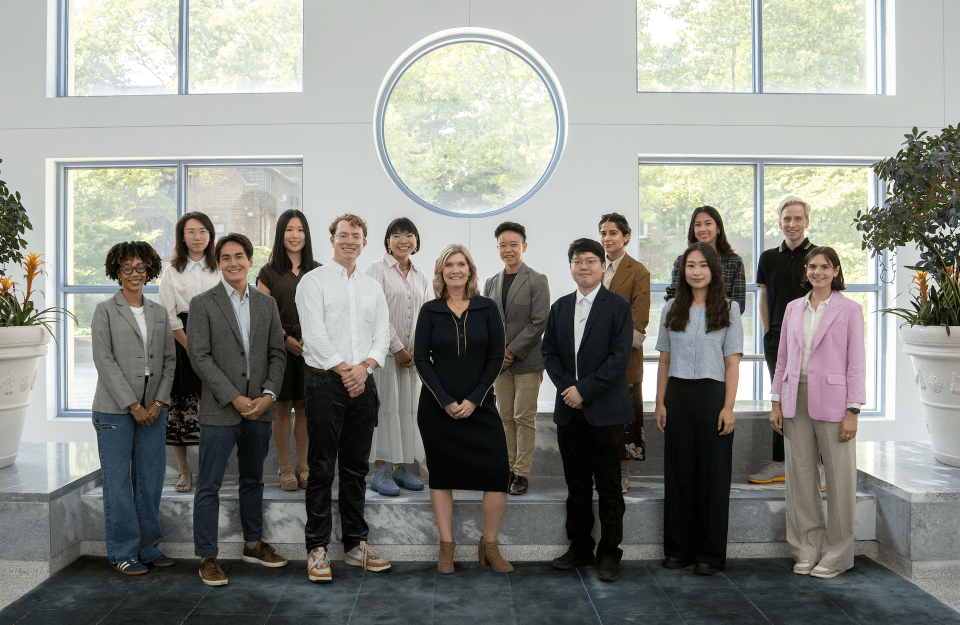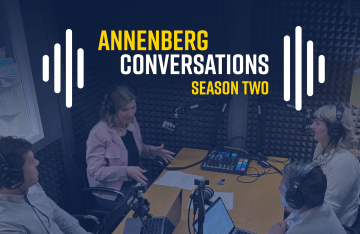The Annenberg School Welcomes Thirteen New Ph.D. Students in Its 2024 Cohort
The students in the School's newest cohort of doctoral students study everything from digital censorship to the use of generative AI.

The Annenberg School for Communication proudly welcomed its newest cohort of doctoral students at the start of the Fall semester. The 13 students in our 2024 cohort bring a wide variety of research interests and experiences to the program.
Many of our new students come to Annenberg with a background in public health. Collin Kather studies how health communication, policy, and management can be used to improve patient outcomes, and earned both his Master of Public Administration and Master of Public Health from Penn. Ying Zhang holds a Master of Science in Public Health from the Johns Hopkins Bloomberg School of Public Health and is interested in researching the impact of health messaging to address health disparities and enhance public health outcomes. Feng Yi Chew has a Master of Public Health from the Harvard T.H. Chan School of Public Health and comes to Annenberg after leading and developing policies relating to infectious disease prevention and response at Singapore’s Ministry of Health. She studies how the mechanisms behind values, attitudes, and behaviors can inform targeted health interventions.
Gayoung Jeon and Hogeun Lee are both interested in combating misinformation. Jeon focuses on the complex nature of misinformation and disinformation in digital media and the increased prevalence of AI and automated content online. Lee is interested in using the psychological mechanisms of persuasion to enhance the effectiveness of health interventions.
Ran Wang and Lauren Tokos both study information access. Tokos focuses on the history and political economy of academic publishing, exploring how corporate infrastructure and policy frameworks constrain global access to information, while Wang, a joint doctoral student at Annenberg and the Department of Sociology, studies the interaction between censorship and digital culture, using fandom culture in China as her case study.
Several of our new students explore the role of digital platforms and emergent technology in contemporary society. Drawing on her professional background in educational technology, Thomonique Moore’s research focuses on how young people use digital technologies and media as tools to learn about, construct, and perform various aspects of their identities. Cameron Moy’s research centers on the disparate impacts of digital platforms and technologies on communities of color. Bianca Zamora Perez explores the labor dynamics underlying the use of generative AI, especially as they affect wage workers with marginalized identities. Arelí Rocha explores the technological and discursive constructions of reality and personhood, with a current focus on human romantic relationships with AI chatbots.
Also joining Annenberg are Christine Phan, and William Pierce.
Please give a warm welcome to our newest doctoral students!



